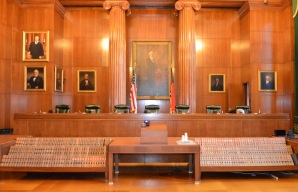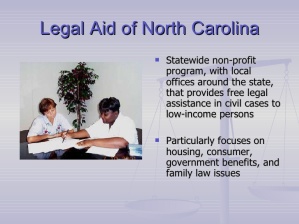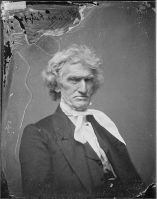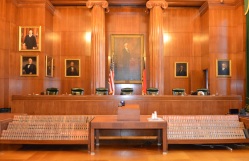 Big questions are in play just now about the practice of law. What is law practice? Who can do it? How should it be regulated?
Big questions are in play just now about the practice of law. What is law practice? Who can do it? How should it be regulated?
Increasingly urgently, how can legal services be delivered to low wealth populations, to people who find themselves embroiled in legal processes about fundamental life issues and who cannot afford lawyers? How are they to resolve issues of child custody, divorce, spousal abuse, veterans rights and health care?
Across the country, lawyers essentially regulate themselves. The agencies that oversee legal services are composed of lawyers elected by lawyers. Some suggest that this creates built-in resistance to change.
Where did this system come from?
The system we have now was established in the 1930s. At the time, everyone generally agreed that persons who deliver legal services ought to have some verified level of knowledge about the law and should be subject to some oversight. A primary goal was to create an orderly system to facilitate national commerce. But the work required to set up and run the system looked so boring that nobody wanted to do it except the lawyers themselves.
In Rules for a Flat World: Why Humans Invented Law and How to Reinvent It for a Complex Global Economy, Gillian Hadfield writes:
No one … was much interested in thinking about such dry and arcane subjects as the uniformity of standards in commercial paper or the problems created by different standards for pleading a complaint. Nor did many care about the educational requirements for those who desire to earn a living from thinking about such things. No one other than lawyers, and elite lawyers at that, was eager to wade into these waters in the early twentieth century.
So, the American Bar Association and state bar associations took the lead. They established the system we have now: of bar examinations, law school accreditation, policing of unauthorized practice, and disciplinary standards.
The system they created has worked marvelously. The American justice system is a distinctive American resource that underpins a complex, creative economy and has fostered vast prosperity, quite apart from its core political function as mediator between government prerogatives and individual rights.
North Carolina was part and parcel of the national process. Former State Bar president, John McMillan has written a superb article that tells the story. The Long Road to Founding the North Carolina State Bar.
After its leaders attended ABA meetings, the North Carolina Bar Association brought a proposal to the General Assembly that mirrored what was being done in other states. It would create the State Bar in which membership by lawyers and annual dues to operate the agency are mandatory. The State Bar would oversee legal services delivery. In words drawn from the Bar Association’s records of 1932 but that ring true today, John McMillan recounts that J.W. Pless Jr. warned that the Bar Association should not expect easy passage at the General Assembly. He said, “We don’t know what success we will have with the legislature. We have never had much.”
Pless was right. Lawyers in the General Assembly immediately suspected the Bar Association of elitism. Its proposal was “hotly contested,” “spirited,” and personal. John McMillan points to an exchange between a legislator and the spokesman for the Bar Association that was reported at the time by The Raleigh News and Observer:
“Who daddied this thing?” demanded the Senator.
“The North Carolina Bar Association at its meeting last year in Asheville,” replied Mr. Bailey.
“I’ll tell you that it passed by a very small majority and over protest,” asserted Senator Kirkpatrick.
“That is not true,” said Mr. Bailey.
“You aren’t calling me what I ain’t, are you?” queried the senator, his face turning crimson.
“I may call you what you are,” Mr. Bailey shot back.
The two were declared out of order.
Upon learning that lawyers would be required to pay State Bar dues of $4 a year, another legislator pronounced that “anything you want me to join that costs over $1, I don’t want it unless I can eat it or wear it.” Dues were cut to $3 a year.
Opponents suspected elitism from the start:
Mr. Grant … charged that the bill was concocted at the Asheville convention last summer and that the convention was attended only by railroad lawyers who rode there on passes while the poor lawyers were unable to stir from home.
But the bill passed and the State Bar was created.
Today, North Carolina, led by Chief Justice Mark Martin, is a national leader in scrutinizing the system and studying the future of legal services. Many of the old questions are back. Perhaps some of the old spirits are back, too.
A theme that’s surely back is the importance to North Carolina’s economy of keeping the State’s legal services delivery processes efficient and aligned with the national system.


 Big questions are in play just now about the practice of law.
Big questions are in play just now about the practice of law.  Word has come that the
Word has come that the 



